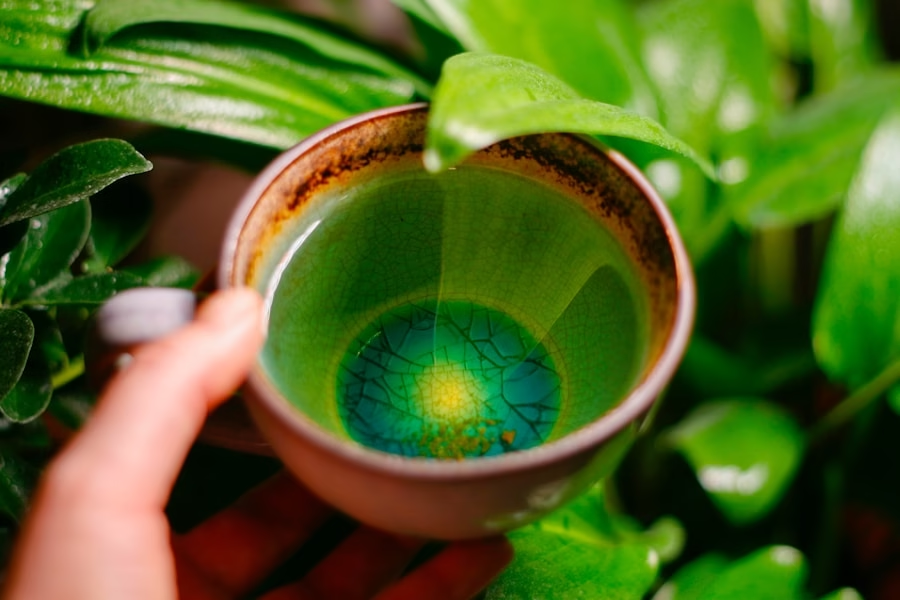Prebiotics are a type of non-digestible fiber that serve as food for the beneficial bacteria that naturally live on the skin. These beneficial bacteria, also known as the skin microbiome, play a crucial role in maintaining the health and balance of the skin. Prebiotics work by promoting the growth and activity of these beneficial bacteria, which in turn helps to support a healthy skin barrier and reduce inflammation. In skincare products, prebiotics are often included to help nourish and support the skin microbiome, leading to a healthier and more radiant complexion.
Prebiotics work by providing a food source for the beneficial bacteria that naturally reside on the skin. This helps to promote the growth and activity of these bacteria, which in turn supports a healthy skin barrier and reduces inflammation. By nourishing the skin microbiome, prebiotics can help to improve the overall health and appearance of the skin. When used in skincare products, prebiotics can help to maintain the balance of the skin microbiome, leading to a healthier and more radiant complexion.
The Benefits of Prebiotics for the Skin: How They Support a Healthy Complexion
There are numerous benefits of using prebiotics in skincare products. One of the key benefits is their ability to support a healthy skin barrier. By promoting the growth and activity of beneficial bacteria, prebiotics help to strengthen the skin’s natural defenses, making it more resilient to environmental stressors and less prone to irritation. Additionally, prebiotics can help to reduce inflammation and soothe sensitive skin, making them an ideal ingredient for those with reactive or easily irritated skin. Prebiotics also have the potential to improve the overall appearance of the skin, as they can help to promote a more balanced complexion and reduce the appearance of redness and uneven texture.
In addition to supporting a healthy skin barrier, prebiotics can also help to improve the overall hydration and moisture levels of the skin. By nourishing the skin microbiome, prebiotics can help to maintain a healthy balance of moisture on the skin, leading to a more supple and plump complexion. This can be particularly beneficial for those with dry or dehydrated skin, as prebiotics can help to restore moisture levels and improve the overall health of the skin. Furthermore, prebiotics have been shown to have anti-aging benefits, as they can help to promote collagen production and reduce the appearance of fine lines and wrinkles. Overall, prebiotics offer a wide range of benefits for the skin, making them a valuable ingredient in skincare products.
Choosing the Right Prebiotic Skincare Products: What to Look for
When choosing prebiotic skincare products, it’s important to look for products that contain high-quality prebiotic ingredients that are formulated to support the health of the skin microbiome. Look for products that contain prebiotic ingredients such as inulin, fructooligosaccharides, or alpha-glucan oligosaccharides, as these have been shown to be effective in promoting the growth and activity of beneficial bacteria on the skin. Additionally, it’s important to look for products that are formulated with other nourishing and soothing ingredients, such as hyaluronic acid, ceramides, and antioxidants, to further support the health and balance of the skin.
It’s also important to consider the overall formulation of the product when choosing prebiotic skincare products. Look for products that are free from potentially irritating ingredients such as fragrances, essential oils, and harsh preservatives, as these can disrupt the balance of the skin microbiome and lead to irritation. Additionally, consider your specific skin type and concerns when choosing prebiotic skincare products, as different formulations may be more suitable for different skin types. For example, those with dry or dehydrated skin may benefit from a richer cream or oil-based product, while those with oily or acne-prone skin may prefer a lightweight gel or serum formulation.
Incorporating Prebiotics into Your Skincare Routine: Tips and Tricks
Incorporating prebiotics into your skincare routine is relatively easy and can be done in a variety of ways. One of the simplest ways to incorporate prebiotics into your routine is by using a prebiotic-rich cleanser or toner. These products can help to nourish and support the skin microbiome while also cleansing and balancing the skin. Additionally, you can look for moisturizers, serums, and masks that contain prebiotic ingredients to further support the health of your skin.
Another way to incorporate prebiotics into your skincare routine is by using a prebiotic supplement or probiotic drink. These products can help to support the health of your skin from the inside out, promoting a healthy balance of beneficial bacteria throughout your body. Additionally, you can also consider incorporating prebiotic-rich foods into your diet, such as garlic, onions, bananas, and oats, which can help to support the growth of beneficial bacteria in your gut and on your skin.
Prebiotics vs. Probiotics: Understanding the Difference and How They Work Together
While prebiotics and probiotics are often used interchangeably, they are actually two different types of ingredients that work in different ways to support the health of the skin. Prebiotics are non-digestible fibers that serve as food for beneficial bacteria on the skin, helping to promote their growth and activity. Probiotics, on the other hand, are live bacteria that are applied directly to the skin to help restore and maintain a healthy balance of bacteria. While both prebiotics and probiotics can be beneficial for the skin, they work in different ways and can be used together to support overall skin health.
When used together, prebiotics and probiotics can help to create an optimal environment for beneficial bacteria on the skin. Prebiotics provide a food source for these bacteria, helping them to thrive and maintain a healthy balance on the skin. Probiotics then work to directly introduce beneficial bacteria to the skin, helping to restore any imbalances and promote a healthy microbiome. By using both prebiotics and probiotics together, you can help to support the overall health and balance of your skin microbiome, leading to a healthier and more radiant complexion.
The Science Behind Prebiotics and Their Impact on Skin Health
The science behind prebiotics and their impact on skin health is still relatively new, but there is growing evidence to support their benefits for the skin. Research has shown that prebiotics can help to promote the growth and activity of beneficial bacteria on the skin, leading to a healthier and more balanced microbiome. This in turn helps to support a healthy skin barrier and reduce inflammation, leading to an overall improvement in the health and appearance of the skin.
Additionally, studies have shown that prebiotics can help to improve hydration levels in the skin by promoting a healthy balance of moisture. This can be particularly beneficial for those with dry or dehydrated skin, as prebiotics can help to restore moisture levels and improve overall skin health. Furthermore, research has also suggested that prebiotics may have anti-aging benefits, as they can help to promote collagen production and reduce the appearance of fine lines and wrinkles. Overall, there is growing scientific evidence to support the use of prebiotics in skincare products for their numerous benefits for the skin.
Prebiotics and Common Skin Concerns: How They Can Help with Acne, Aging, and Sensitivity
Prebiotics can be particularly beneficial for those with common skin concerns such as acne, aging, and sensitivity. For those with acne-prone skin, prebiotics can help to promote a healthy balance of bacteria on the skin, reducing inflammation and supporting a healthy skin barrier. This can help to reduce breakouts and improve overall skin health. Additionally, prebiotics have been shown to have anti-inflammatory properties, which can be particularly beneficial for those with sensitive or easily irritated skin.
For those concerned with aging skin, prebiotics can help to promote collagen production and reduce the appearance of fine lines and wrinkles. By supporting a healthy balance of bacteria on the skin, prebiotics can help to maintain a more youthful complexion and improve overall skin health. Furthermore, prebiotics can also help to improve hydration levels in the skin, leading to a more supple and plump complexion.
Overall, prebiotics offer numerous benefits for those with common skin concerns such as acne, aging, and sensitivity. By promoting a healthy balance of bacteria on the skin and supporting a healthy skin barrier, prebiotics can help to improve overall skin health and appearance. Whether used alone or in combination with other skincare ingredients, prebiotics are a valuable addition to any skincare routine for their ability to support a healthy complexion from within.




